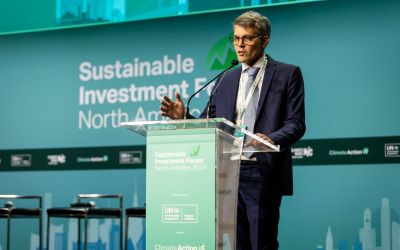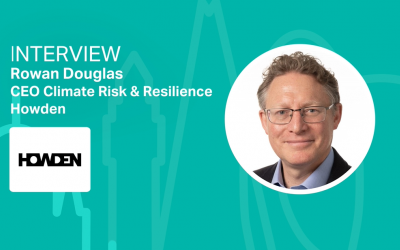Institutional Investors Committed to Sustainable Investment, BNP Paribas Survey Finds
The 2025 edition of BNP Paribas’ ESG survey reveals that institutional investors remain committed to sustainable investment, shifting toward thematic, impact-driven strategies amid a changing political and regulatory landscape.

The fifth edition of BNP Paribas’ biennial ESG study, “Industry Survey: Institutional Investors Leading the Way”, captures the views of 420 asset owners, asset managers and private capital firms, representing an estimated USD 33.8 trillion assets under management across 29 countries. BNP Paris commissioned CoreData Research to conduct the survey and is an initiative of the bank’s Securities Services, in coordination with Global Markets and Financial Institutions Coverage businesses.
The data was collected between the end of November 2024 and end of January 2025 from 140 asset owners, 140 asset managers, and 140 private capital managers across EMEA (50%), APAC (50%), and the Americas (24%), with extensive qualitative interviews with industry specialists taking place between February and April of this year. The survey offers a comprehensive analysis of current attitudes towards sustainable investment, amid a shifting geopolitical landscape that is challenging existing commitments.
The key findings include:
“ 1. Unwavering commitment to ESG objectives, despite a lower level of advocacy
- The vast majority of respondents (87%) say their ESG and sustainability objectives remain unchanged, while 84% believe the pace of progress of sustainability is either going to continue or accelerate between now and 2030.
- 41% of respondents suggest a more reserved approach in communicating their process and achievements.
2. Continued ESG considerations in investment decisions, moving away from generalist ESG investing
- 85% of respondents say they integrate sustainability-related criteria into their investment decisions, with 59% performing thematic investing.
- The top 3 primary sustainability/ESG objectives in the next two years for the respondents are:
- Increasing allocations to energy transition assets (49%);
- Using active ownership to advance their own organisation’s ESG goals (47%); and
- Investing in low-carbon assets while divesting from carbon-intensive assets (46%);
3. More sophisticated approach – integrating climate, biodiversity and social impact themes into strategies
- Investors are increasingly allocating to specific themes or regions to help identify opportunities for impact and alpha, and focus their expertise into generating better outcomes.
- Based on the survey’s key characteristics framework, 19% of respondents have been identified as “pacesetters” – the more advanced type of investors in sustainable investing. These leaders are putting much greater emphasis on portfolio decarbonisation (95%), social issues (94%), just transition (68%), and biodiversity (86%) in their investment strategy.
4. Emergence of private capital managers in sustainable investing
- 51% of the responding private capital managers expect to use active ownership to fulfil their ESG goals and are placing more emphasis on social issues (76%) and just transition (63%).
- Most private capital managers believe ESG investing can add value, improve alignment with asset owners, satisfy their stakeholders and enable them to benefit from investment themes around decarbonisation and the shift to a low-carbon economy.
5. Strategic banking and data partnerships to navigate the transition
- The top criteria for investors when selecting an external banking services partner are:
- Brand reputation on ESG / sustainability (51%);
- Availability of products and expertise (40%);
- Commitment to long-term client relationship (33%); and
- Shared sustainability commitments (33%)
- To support their aim to access and generate reliable ESG data, nearly half of investors (48%) anticipate allocating more budget to their sustainable investment strategy on ESG data acquisition and analysis.”
To conclude, the survey shows that institutional investors remain firmly committed to sustainable investment and are adopting a more focused and data-driven approach. Although public advocacy and regulation around ESG standards have somewhat softened, the integration of sustainability into investment decisions is currently accelerating, with a clear pivot towards thematic strategies such as the energy transition, active ownership in advancing their own organisation’s ESG goals, and investment in low-carbon assets/divestment from those that are carbon-intensive. A growing group of advanced “pacesetters” and increasingly engaged private capital firms are leading the way by embedding climate, social, and biodiversity goals into their portfolios.
It will be interesting to see whether these views hold in the next biennial survey, or if a time lag emerges between shifts in policy and advocacy and corresponding changes in investor behaviour.
Read the press release here
Read the full report here






